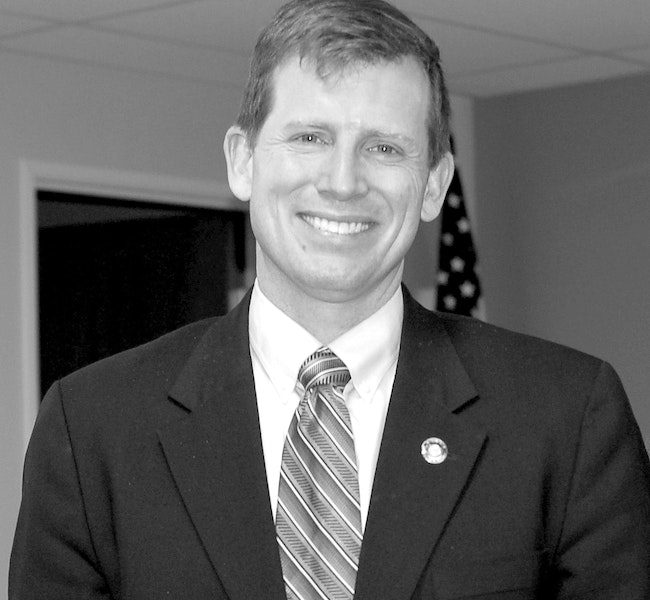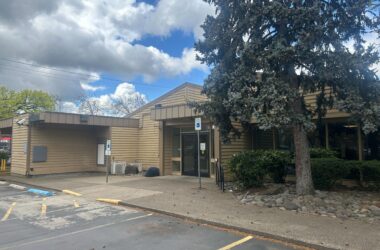 Rep. Marty Wilde
Rep. Marty Wilde
COVID-19 has struck the nonprofits and small businesses that serve our communities, just as it has so many of our neighbors. The uncertainties of the length of the crisis make it particularly difficult to make plans and take care of employees.
Fortunately, the recently passed CARES Act provides substantial resources, including free counseling, federal funding for the cost of retaining employees, cash grants, debt relief for existing Small Business Administration debtors, and tax relief.
The businessowners and nonprofit leaders I’ve spoken with have generally responded with some variation of, “This is too good to be true.” In fact, these programs are the federal government’s attempt to hold small businesses largely harmless from the impacts of COVID-19 and related social distancing measures.
By “giving away money” through these programs, the SBA hopes to have small businesspeople and nonprofits ready to snap back into full operation as soon as the crisis has passed.
In this, the federal government has taken the lessons of the Great Depression and Great Recession – that austerity in a time of crisis is a folly that cripples the recovery.
I encourage small business owners and nonprofit leaders to take the bold actions supported by the federal government to help their employees and the economy.
If you don’t know where to start, Oregon’s existing network of community college-associated Small Business Development Centers provides free counseling regarding new and existing options. Both Lane and Linn Benton Community Colleges host these centers, which continue to operate remotely during this period of social distancing. Email [email protected] or [email protected] for help.
The SCORE network provides free mentoring for those who would like assistance from another local executive. Answers are available for the asking!
The Small Business Administration working directly and through local lenders, provides forgivable loans for businesses and nonprofits impacted by COVID-19 and the measures to prevent it. The Paycheck Protection Program (PPP) provides up to 250% of payroll (including benefit expenses) for loans at up to 4% for up to 10 years for small businesses, to include self-employed, sole proprietorships, and independent contractors. Perhaps most important, these loans are forgivable up to payroll, rent, mortgage interest, and utility costs for up to 8 weeks. In effect, Uncle Sam wants to pay your rent, utilities, payroll, and benefits for up to 8 weeks of the crisis so that your business can bounce back quickly. These expenses are retroactive to Feb. 15, 2020, making it possible to recall laid off employees. Contact your lender to apply.
For smaller businesses, including sole proprietorships and contractors, the SBA will provide a $10,000 grant and up to a $2 million loan through the Economic Injury Disaster Loan (EIDL) program. Interested parties should apply through the SBA at https://disasterloan.sba.gov/ela/. The $10,000 grant usually is approved within hours and does not require continuing with taking sums under the loan program, although the loan application must be completed. For businesses that do choose to take a loan under this program, the payments are deferrable for up to four years. Impacted businesses may apply for both the PPP and EIDL programs.
Already have an SBA loan or planning to get one in the next six months under a non-disaster loan program? No problem – business with non-disaster SBA loans, in particular 7(a), 504, and microloans, may get these deferred. SBA will cover all loan payments on these SBA loans, including principal, interest, and fees, for six months. This does not preclude getting a PPP loan as well. Contact your lender for more information.
For small businesses and nonprofits that choose not to use the PPP, but whose operations have been suspended by government order or who have suffered a 50% or greater quarterly drop in receipts, they may receive a tax credit for 50% of wages and many benefits paid during the crisis.
The CARES Act also defers payment of employer payroll taxes for all of 2020 for small businesses and nonprofits that do not take a PPP loan. These payments must be made up in equal payments at the end of 2021 and at the end of 2022.
These programs aim to provide crucial support to small businesses and nonprofits in our community as we all do our part to limit the spread of COVID-19. They represent just part of the many programs that can help keep our small businesses and nonprofits serving our communities.
If you or your family have questions or require assistance, please contact my office directly at 503-986-1411 or [email protected].







